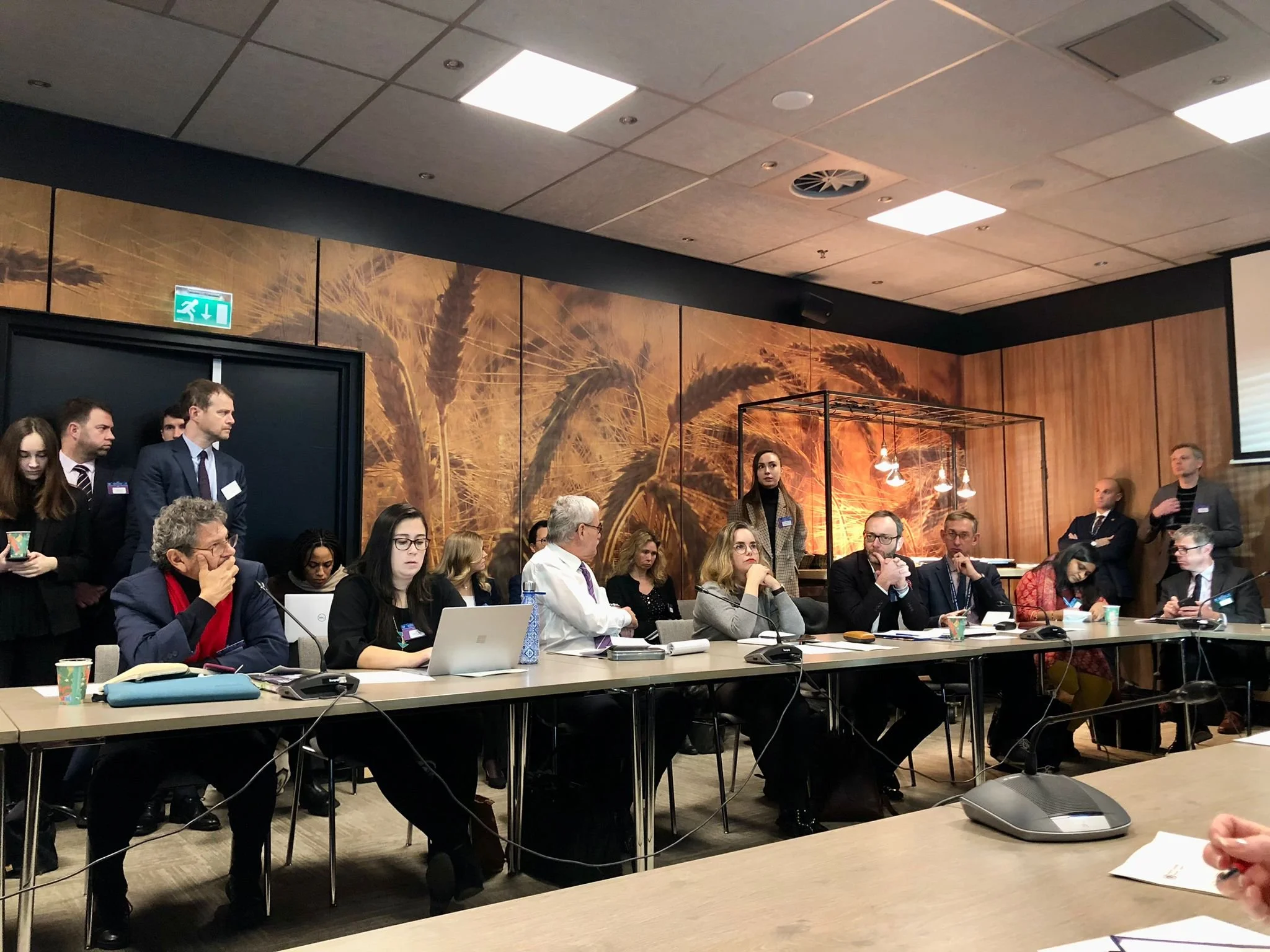21st SESSION OF THE ASSEMBLY OF STATES PARTIES
6 December 2022
Name of the Event: Prosecuting the Crime of Aggression to Defend the Rules-Based International Order (organized by Liechtenstein and Luxembourg)
Report by: Kateryna Kyrychenko, Program Manager, PILPG
Highlights:
Aggression is one of the key international crimes. In the context of Ukraine, aggression (invasion of Ukraine’s territory by Russia in February 2022) is the main crime from where all the other occuring war crimes/alledged genocide stem.
The ICC does not have jurisdiction over the crime of aggression (especially over aggression committed in Ukraine as neither Ukraine nor Russia are parties to the Rome Statute). The situation in Ukraine created conditions calling for a revision of the ICC system to ensure aggression of a sovereign country is duly punished in all situations.
Due to the lack of ICC jurisdiction, an alternative should be found to find liability for Russian aggression in Ukraine. An option would be the establishment of a Specialized Aggression Tribunal that would have jurisdiction only over situation in Ukraine. There is an open discourse over the format of such a potential tribunal.
Speakers:
H.E. Mr. Christian Wenaweser, Ambassador of the Principality of Liechtenstein to the ICC
Prof Oona A. Hathaway, the Gerard C. and Bernice Latrobe Smith Professor of International Law at Yale Law School, Professor of International Law and Area Studies at the Yale University MacMillan Center, Professor of the Yale University Department of Political Science, and Director of the Yale Law School Center for Global Legal Challenges
Prof Jennifer Trahan, Clinical Professor at NYU's Center for Global Affairs
Ms Kerli Veski, Director General of Legal Department, Estonian MFA
Summary of the Event:
The crime of aggression did not use to be a prevalent crime in international community, however, the current situation in Ukraine has demonstrated the dire need to review the existing ICC system with regard to the crime of aggression.
During the event Ambassador Wenaweser noted that the world order is currently facing one of the most significant challenges since World War 2, highlighting that there is a major challenge on the global prohibition on the use of force. Specifically, he pointed out that Russia's invasion of Ukraine, aided by Belarus, undermines the global world order. He further added that aggression is a supreme international crime and it accumulates all international crimes as a whole: without aggression there would have been no war crimes, no genocide in Ukraine. Russia’s invasion of Ukraine has put international legal order in danger.
Furthermore, Ambassador Wenaweser spoke about the ICC jurisdiction for the crime. The ICC does not have jurisdiction over non-state parties for the crime of aggression despite Ukraine’s declaration accepting the jurisdiction for other crimes. He underlined that the jurisdiction of the Court over the crime of aggression for non-state parties should be added to the ICC jurisdiction along with other crimes. Besides the ICC jurisdiction, he suggested that the UN Security Council response might be a way to punish the crime of aggression.
Moreover, during the event, the panelists discussed other challenges there will be for prosecuting the crime of aggression for Ukraine, such as the issue of immunities of higher military and political leadership. Member States to the Rome Statute are supportive of the ICC investigations in Ukraine and have made resources available for this purpose. The ICC is expected to play central role in investigation and prosecution of crimes, over which it has jurisdiction. According to the panelists, for prosecuting the crime of aggression, a specialized tribunal should be created. Ambassador Wenaweser mentioned that it should be done on the national rather than the domestic level - both for symbolic (as world order as a whole is undermined by the aggression) and practical reasons (lack of capacities on the national level, ensuring impartiality and efficiency of decisions). Ambassador Wenaweser shared his views that a new specialized tribunal, that might be created in future, must be narrowly focused on the crime of aggression alone and on perpetrators only in leadership positions.
Next, professor Jennifer Trahan presented her consideration on the model for such a tribunal for Ukraine: fully international tribunal, international judges only (to ensure impartiality and neutrality), no temporal limitation of the jurisdiction (so that the tribunal could prosecute aggression in Ukraine since 2014). The process of establishment of such a tribunal, as suggested by Prof. Trahan is that Ukraine submits a letter to the UN Security Council and the UN General Assembly calling for the decision to establish the tribunal. She noted that, at the UN General Assembly, a majority of the votes would be enough unlike at the UN Security Council. Related issue flagged by Prof. Trahan is that only 44 states have ratified the Kampala amendments, which causes limitations for the ICC.
After professor Trahan, Ms Kerli Veski discussed the Estonian position with regard to the Russian invasion. Estonia understands the need to prosecute Russia’s crime of aggression well. Crimes of the former Soviet Union were left unpunished and Russia (as a main successor of the Soviet Union) has continues the repression committed during the 20th century, which were left unpunished, feeling no guilt and impunity for the former crimes. As such, the international community needs to end this impunity. She added that gravity of the current situation requires immediate action and offered Estonian support for the Specialized Tribunal for Aggression.

